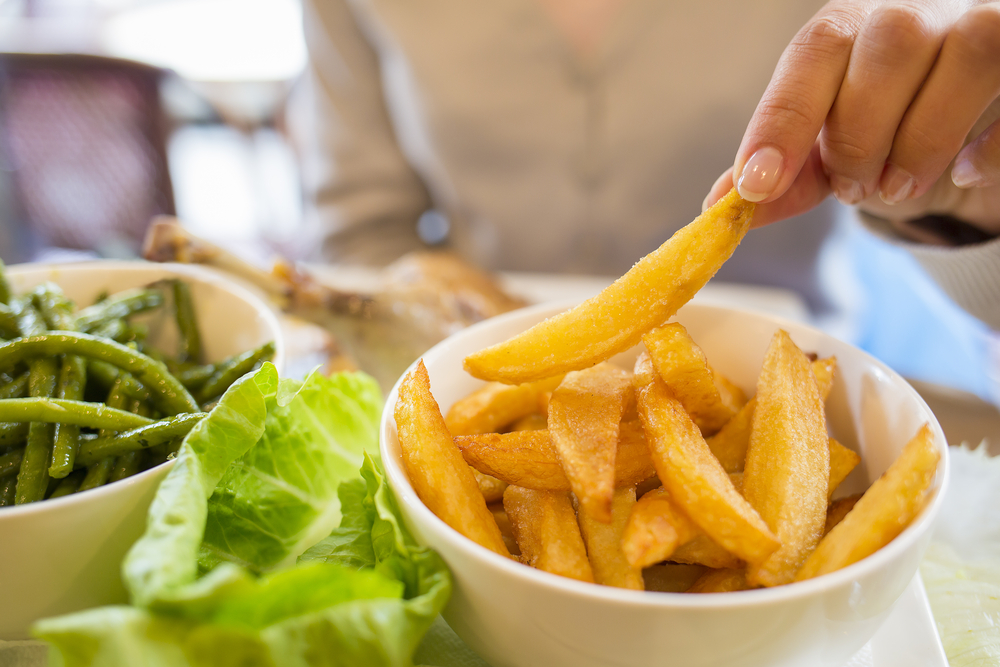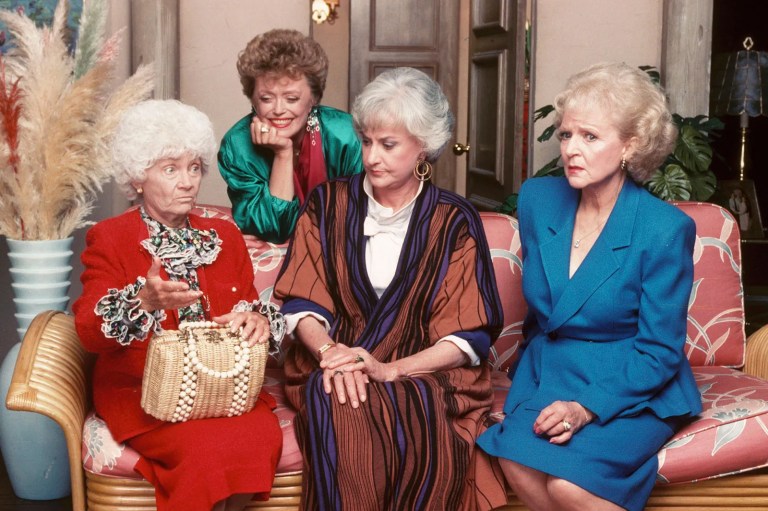
6 Things I Learned From Finally Reaching My Goal Weight (After Years Of Failing)
In my experience – and the experience of many people I’ve met who have also met their goals – your weight specifically is going to be about 80 percent diet, and 20 percent activity.
Fair warning: This article is about weight loss specifically, and about weight being tied to health, because mine definitely was. I fully accept that some people can be healthy at a higher weight, but I was not one of those people. At 5’6″, 152, I was doughy, sedentary, depressed, and in no way taking care of myself. This article is about my personal journey and no one else’s, and my desire to get to a smaller bodyweight to feel better (and make exercise easier). My journey is not an indictment on anyone else’s body, or their ability to be my former weight (or higher) and be at peak physical health. Anyone else’s weight is none of my business, and I’d like to keep it that way.
Now that that’s out of the way, these are the things I learned from (finally) losing 20 pounds and getting down to – depending on the day – a weight of about 130lb at 5’6. I’d failed at the task for years and didn’t know why, but now, after about 3.5 months of concerted effort, I’ve reached my goals. This is everything I know now.
1. Until you accept calories in, calories out, no diet for weight loss will make sense.
If your diet is specifically to change your eating habits and be more well-rounded nutritionally, and weight loss is not a part of it, that’s totally different. But if you are specifically trying to shed weight, you need to know your TDEE (total daily energy expenditure, in calories), and balance it against what you’re eating. (Sometimes this is very low, yes, but even with a TDEE of 1250 you are still victim to the laws of thermodynamics.)
Anyway, I used to do stuff like Vegan til 6 (without counting the calories), and wouldn’t lose a thing, and get so frustrated. But despite me potentially getting more leafy greens, I was still overeating, this time just in things like hummus, avocados, and nuts (which is very easy to do, by the way). Any diet you are doing for weight loss needs to be balanced clearly against your energy needs, or it’s going to be a frustrating battle. Once you accept CICO, however, it becomes a simple question of math, and you can predict your losses nearly down to the ounce.
2. You have to separate fitness from weight loss.
In my experience – and the experience of many people I’ve met who have also met their goals – your weight specifically is going to be about 80 percent diet, and 20 percent activity. It’s extremely easy to cancel out your calories burned while exercising in just a small amount of overeating, and in fact, many studies indicate that increasing exercise without carefully watching food intake can actually lead to weight gain. And I know that for me personally, it’s very easy to justify excessive calories when I’ve just worked out because I feel like I’ve “earned it” and am ravenously hungry.
So, now that I’ve reached my pure weight loss goals, I’ve moved to fitness goals (I’m in week two of a C25k program), and now that my eating habits have successfully adjusted to my new lifestyle, it’s no longer as difficult to balance increased activity against increased calories. I’ve raised my daily intake by about 300 calories to be at “maintenance” instead of “active loss,” and if/when my physical activity is raised to burning a significant amount of calories (right now it’s not more than a few hundred a few days a week), I will adjust accordingly. But my eating habits are very lucid and manageable now, so I feel comfortable slowly working in increased activity without overcompensating in my diet.
3. If you let yourself, you can delude yourself into anything.
In order to truly embrace CICO and fitness, you need to be honest with yourself at every turn, because your brain will want at every turn to delude itself into thinking it’s doing something other than what it is. Calories you consume mindlessly, or that you don’t account for, aren’t going to trick your body – they count, too. Same for the workouts you don’t finish, or do at all. For me, at the beginning, it was essential to account for everything meticulously so that I could really see the results of manipulations to my lifestyle. Now, I’m more comfortable eyeballing things (always erring on the side of too much), and I’m not as concerned with every little detail of what I do. But it’s been important, in achieving this, to always overestimate what I’m eating and underestimate what I’m burning because the brain’s tendency is to grossly do the opposite – this is a fact of human nature. Once I accepted that my brain was not to be trusted and that it was up to me to combat my delusions, I finally gained control over my results.
4. You have to let yourself live, too.
I have at least one day a week where I don’t give a shit what I eat, and I don’t count. This is also true for short vacations, special dinners or celebrations, and other events where it’s not worth it to count for every little thing. I practice intermittent fasting – no, it’s not an eating disorder, so please don’t write me in “concern” – so it’s easy for me to “reset” after a particularly indulgent day or so. But even with just pure calorie counting, everything is something we can measure and account for. I have learned to balance my days of plenty with my days of less, and to never feel deprived for it. If a big weekend means that Monday and Tuesday will consist of one small and one large, concentrated meal each, that’s fine by me. I don’t mind going veggie crazy so I can enjoy the shit out of my celebrations.
5. We have to shed the idea of the American lifestyle as “normal.”
So much of the American perception of food and eating is so unhealthy, and the more we separate our “normal” or “average” from “healthy,” the better. Our culture is one that eats out nearly every meal, overeats on a near-daily basis, doesn’t eat in season, and treats the mere implication of hunger as a mortal sin. Many other cultures practice fasting – in many different forms – on a regular basis, and find enormous value in the feeling of hunger. (Which is, scientifically, not wrong.) They eat in season, eat meat relatively rarely, and eat drastically smaller portions. There is so much we could learn from nearly every culture other than ours, and there is a reason why we are seen as a cautionary tale for many other countries (countries with, often, much healthier and more sustainable relationships to food). Just the degree to which we eat meat, one could easily argue, is reason enough to consider our “normal” as an objective “dangerous.” It’s not just about how much we weigh, it’s about how we view and consume food as a people.
6. Accepting that you can control your body is liberating, not destructive.
Nothing has been more life-changing to me than realizing that I am in total control of how much I weigh, how fit I am, and what I look like. I can totally change my perceptions about food and fitness – and I have – and none of it has to be a guessing game. Since I’ve accepted CICO and begun treating my body as the beautiful machine that it is, I’ve never again felt the pang of emotion about something as silly as eating too much food or not working out enough. It’s simply a balance, and I can find it again. Knowing that you can’t trick the bottom line of physics is liberating because it means that it doesn’t have to be a personal indictment when you don’t do something perfectly, it’s simply something that you can address in a productive and healthy way tomorrow. Counting calories, for me, has been the opposite of obsessive or unhealthy – it’s meant that I’m finally in control of every aspect of my physical self, just as I am with my social or professional self. It’s not a guessing game, and everything – from a bag of carrot sticks to a big slice of cake or pizza – has its place in my new diet.
Treating your health like a bank account means that there is always a way to balance the ledger, and you don’t have to beat yourself up for every little splurge. Changing your attitude about what food needs to be (and the difference between overindulgence and living well) means that you can appreciate the treats more, and have a more sustainable relationship with your own well-being. I have reached my goals by giving up nothing, but rather accepting moderation, embracing the food wisdom of cultures other than my own, and learning that I can’t trick myself if I want to see results. ![]()











